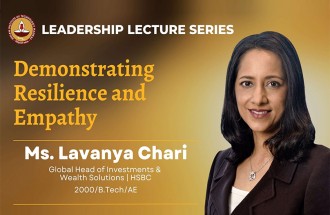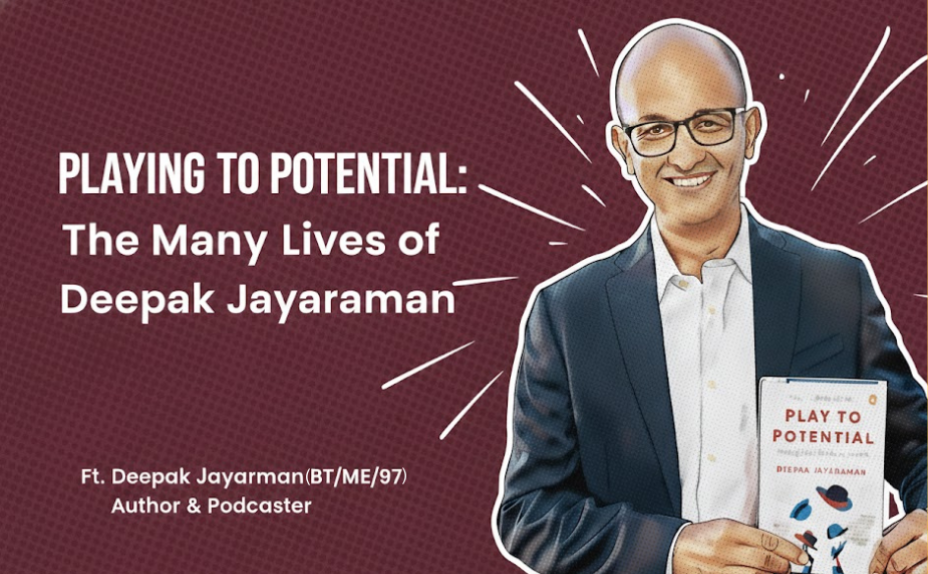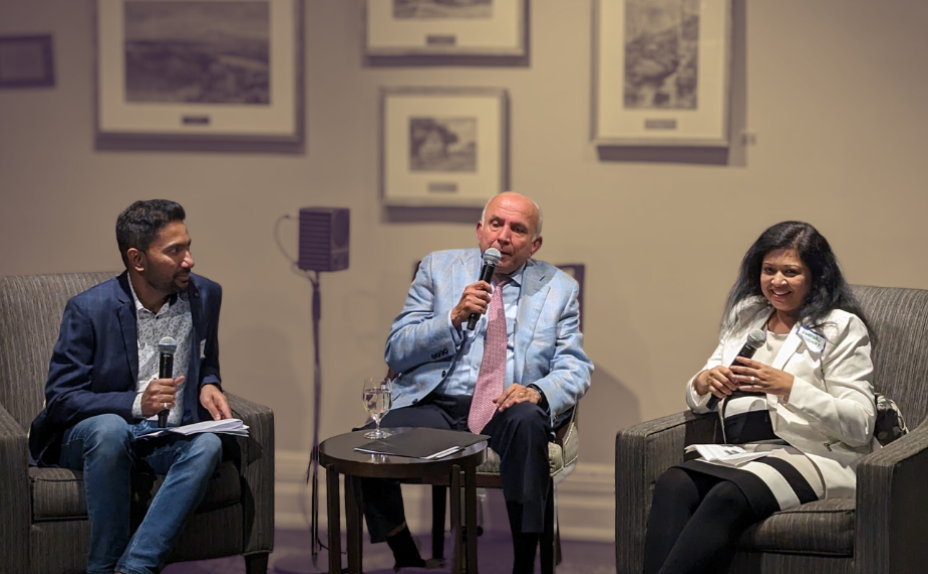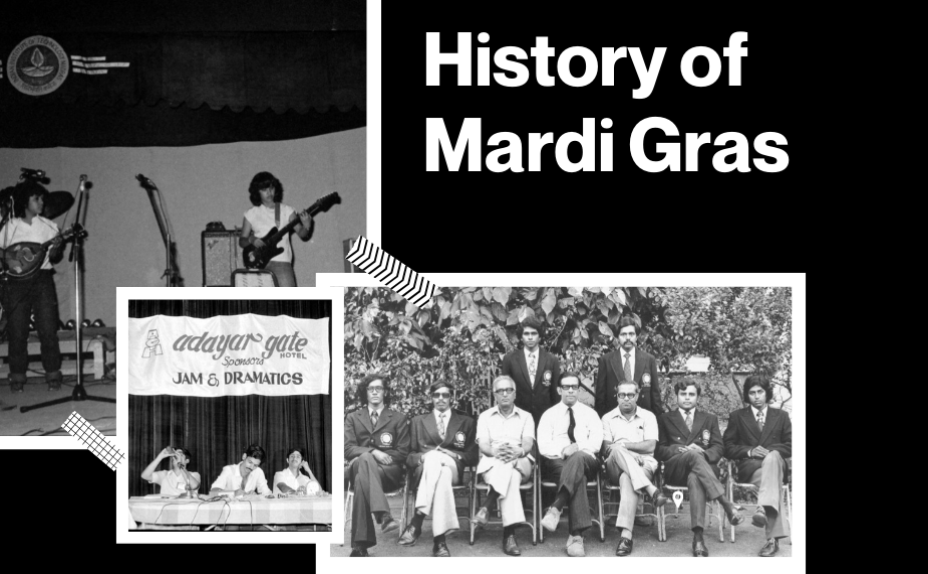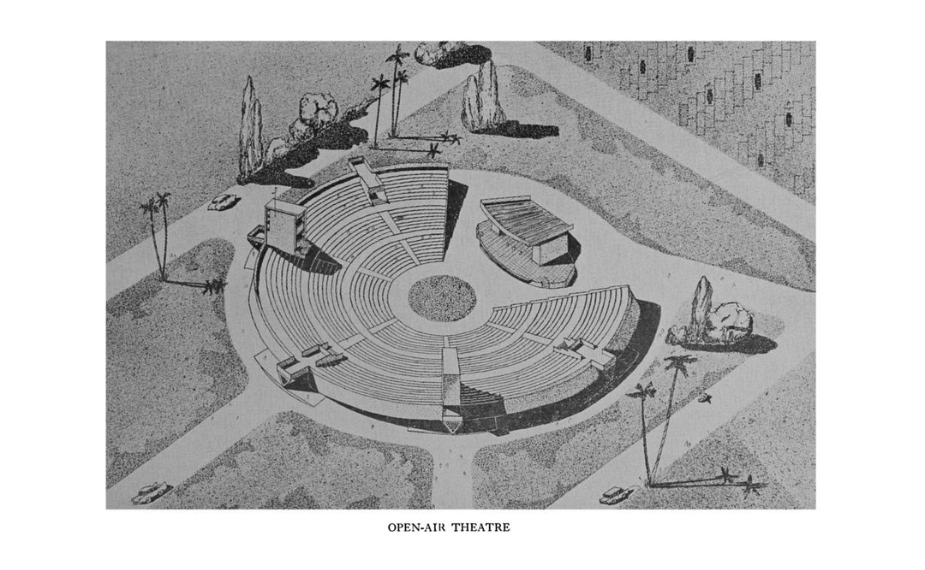
Open Air Theatre: Centre of our lives@Insti in more ways than one!
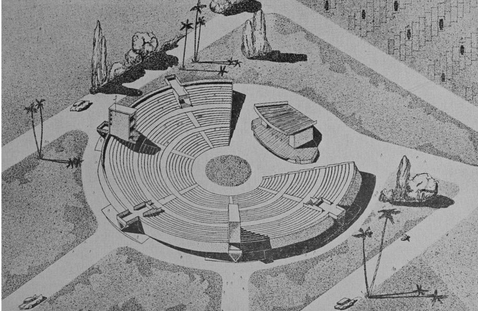 A brief history
A brief historyDesigned like a Roman amphitheater, the OAT is capable of seating 6,000 people and features a 120-by-80-foot central platform with a 24-by-50-foot screen. There are four entrances: main, family, student, and garden.
But few would expect OAT’s history to go back to the Cold War. The Indo-German collaboration during the Cold War was a major factor in establishing IIT-M in 1959. OAT stands as a testament to this alliance. The foundation stone for OAT was laid by Dr. Heinrich Luebke, President of the Federal Republic of Germany, when he visited the institute on December 3, 1962, marking the theatre's inauguration.
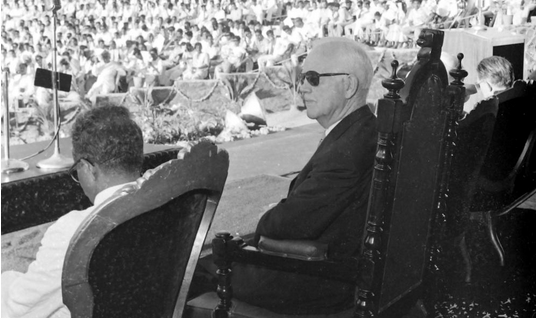
Initially, the idea of OAT was to function as a common space for institute-related events and special occasions. Convocation and Institute Day were held in OAT until the Student Activity Centre (SAC) was constructed in 1983. Movies used to be screened on Sundays but were later changed to Saturdays. There are no records of the first movie screened. However, thanks to S Ramanathan of the 1969 batch, who had written down the list of movies in his diary, it is known that classics such as Born Yesterday (1950), Dial M for Murder (1954), Operation Petticoat (1959) and The Anatomy of Murder (1959) were among the earliest movies screened.
Memories of OAT
Every Alumnus of IIT Madras will have a special story to share about OAT. Be it legends about the resilience of the film club to screen movies even through rain or storm. Be it queues that stretch all the way to Gajendra Circle for Saarang music concerts (or ‘Mardi Gras’ as the 60’s and 70’s Batches would fondly reminisce). Be it the 2011 ICC World Cup Finals when all of IIT Madras witnessed India’s victory in OAT. Or be it something as simple as staring at the moonlit sky when a boring movie is playing in the background. As Abhijeet Bhadra, an Alumnus of IIT Madras, most eloquently put it: “OAT, the cynosure of all eyes on Saturday nights. Trek through the twilight after a special Saturday dinner at the mess, joining the organic groups of hang-out buddies walking over to enjoy a movie together. Clutching pillows and sheets to soften the harsh concrete of the bleachers, in animated conversation about the (mostly) terrible performance in the last “periods,” or periodicals, a battery of tests that happen “periodically.” Misery loves company, and what better time to assuage ruffled expectations than in the company of friends on a weekend while planning to watch whatever movie was on tap”.
As Abhijeet Bhadra, an Alumnus of IIT Madras, most eloquently put it: “OAT, the cynosure of all eyes on Saturday nights. Trek through the twilight after a special Saturday dinner at the mess, joining the organic groups of hang-out buddies walking over to enjoy a movie together. Clutching pillows and sheets to soften the harsh concrete of the bleachers, in animated conversation about the (mostly) terrible performance in the last “periods,” or periodicals, a battery of tests that happen “periodically.” Misery loves company, and what better time to assuage ruffled expectations than in the company of friends on a weekend while planning to watch whatever movie was on tap”.
OAT today continues to live in the hearts and minds of everyone who has witnessed its magic.
Indeed, A.L. Tennyson’s famous, soulful lines, could have well applied to OAT, ‘For men may come and men may go, But I go on forever.’
- An article by Muhammed Fawzan, Student Intern, ACR Office, IITM

